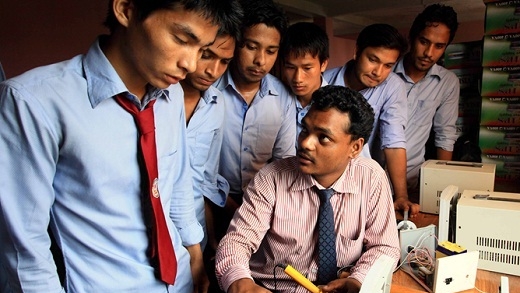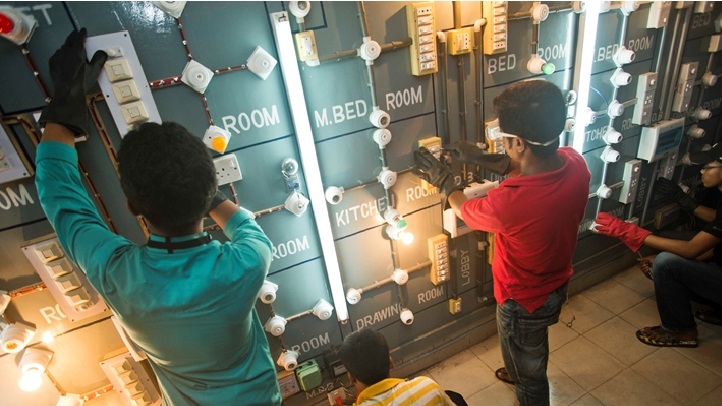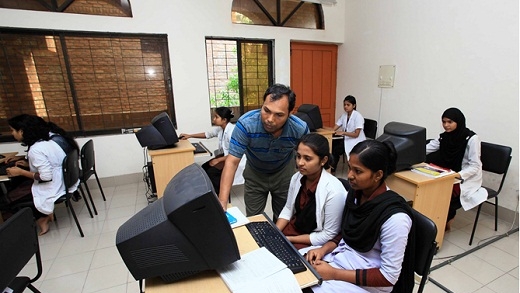Challenge
In recent years, remittance from migrant workers has been a driving force of the Bangladesh economy. However, Bangladeshi migrant workers, who speak little English, have poor basic formal education and few vocational industry-specific skills, often face severe job insecurities. They are usually the first to lose their jobs as the economies of the popular migrant destinations begin to experience economic recession. They also fail to avail themselves of the better jobs that require higher skills. Even at home, their lack of relevant skills and a mismatch between supply and demand leads to very poor employability and lower wages for them. Furthermore, the recent increase in the demand for skilled labor, both nationally and globally, continues to pose a threat to the Bangladesh economy as the skill-base of workers here is severely limited.
Solution
STEP aims to increase the skill levels of the workforce to ensure competitiveness in both the labor and product markets. Enhancing the range and quality of vocational training will help the country to more effectively utilize the overseas employment opportunities and increase Bangladesh’s remittance earning. Through effective vocational training, the project hopes to increase the average wage that a migrant can demand in the international labor market as well as reduce the risk of unemployment in times of financial crisis. At home, with the increase in skills, the export industry will be able to diversify the product base it offers to consumers. STEP is designed to address the key issues concerning the Technical and Vocational Education Training (TVET) sector in a number of ways. First, by incorporating views from industries and civil society it seeks to ensure that the programs being offered are relevant to the needs of the labor market. Secondly, it would ensure that the teacher-trainer vacancies that have remained open for a period of six months or more are filled. Thirdly, the project breaks new ground by supporting both public and private institutions and thereby creating a level playing field. Polytechnic institutions that perform well in terms of pass rates, number of teachers trained, and placement rates of students within a period of six months after completion of the program, will receive a performance grant of $200,000 on top of their initial implementation grant of up to $1 million. Short-courses providing institutions receive $250 per student of which $60 is stipend to the student. In addition, 20% performance grants of the per student amount offered to institute for each trainee, who is employed within six months of completion of their training. Finally, the project provides stipends to students from disadvantaged socio-economic backgrounds. Students receiving a stipend must maintain 75% annual attendance and 45% pass marks in the annual examinations. STEP also aims to pilot new TVET schemes, especially at the secondary school certificate (SSC) level, in an attempt to link schools with community and other training providers. Furthermore, it plans to pilot an apprenticeship program, orient students to vocational education and training in their early years and revise the curriculum with a focus on technical skills.



